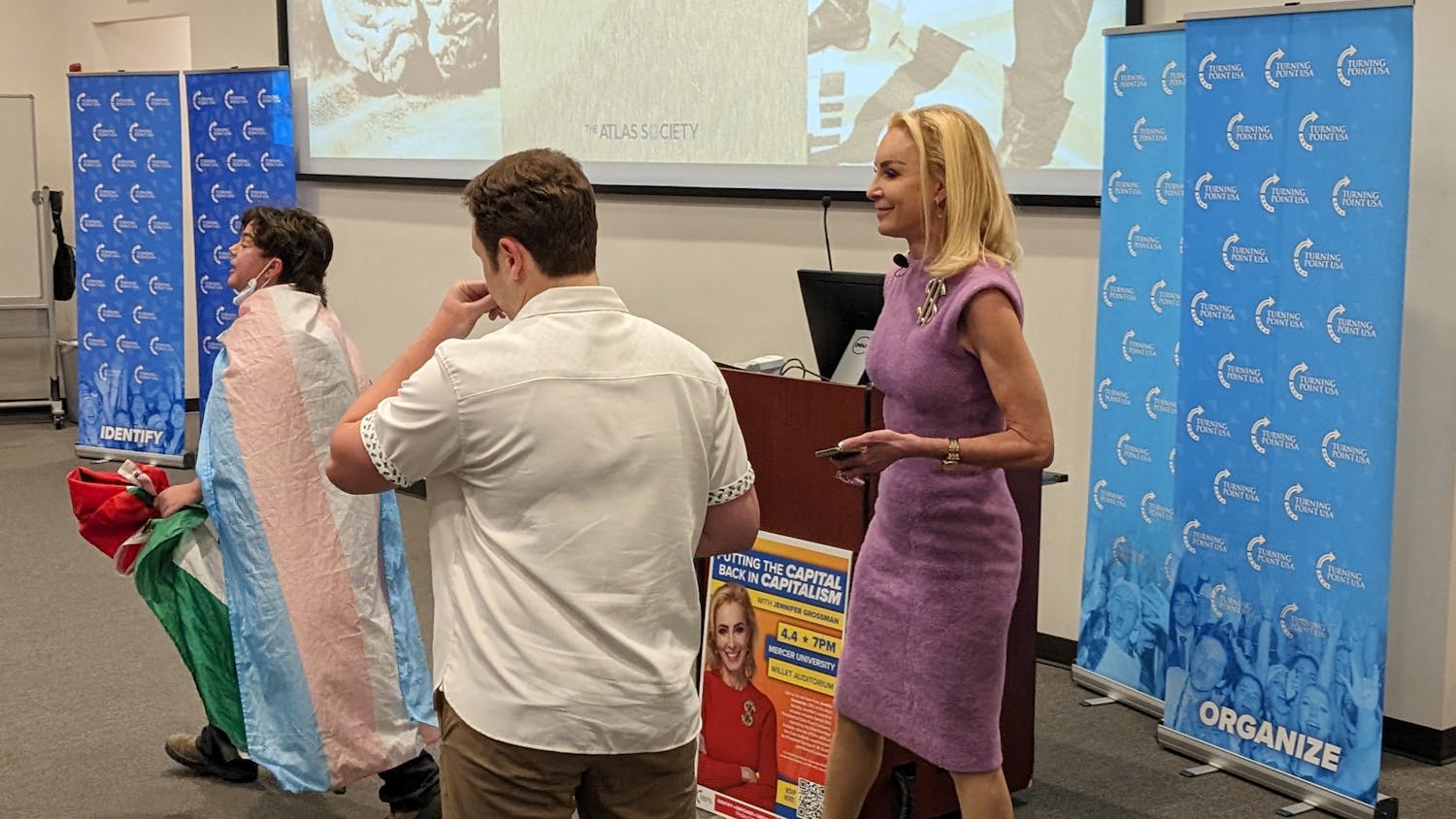The percentage of students joining Greek organizations at Mercer University has declined in recent years.
Compared to other universities similar to Mercer’s size and structure, Mercer is trailing behind with only 24 percent of their total 2,240 undergraduate students belonging to a fraternity or sorority, according to information provided by the Office of Greek Life.
According to Cappex, 70 percent of Sewanee’s 1,536 enrolled students belong to a Greek organization on campus.
Thirty-seven percent of Emory University’s 5,325 undergraduates are involved in a Greek organization.
Furman University reported to U.S. News that of their 2,761 enrolled students, 31 percent of their undergraduate men are affiliated with a fraternity and 47 percent of their undergraduate women are in a sorority.
Mercer University reported percentages almost cut in half with only 19 percent of undergraduate men in fraternities and 25 percent of undergraduate women in sororities.
Cindy Drury, Assistant Director for Campus Life, says that Mercer is seeing declining numbers in all Greek organizations on campus. Drury says that this may be due to financial reasons, as Mercer is expensive to attend.
Drury also said that Mercer is seeing a decline in enrollment, and that the students that do choose to attend Mercer are much more one-track focused and academically minded than in previous years.
Drury said that incoming students are planning to attend graduate school, and they feel that having the highest GPA possible is more important in accomplishing this than adding to their resume that of joining organizations on campus.
Recruitment for sororities, which is normally held the first week of the semester, was moved to the second week of school this past year in hopes of more women participating.
When Drury was asked whether this reaped any benefits or not, she said that although numbers were decent, not as many women went through recruitment as originally anticipated.
Drury said that each chapter received approximately 16 women in their pledge class this fall. She said that in 2000, a typical new member class was as high as 28 women.
When asked why Mercer does not opt to do formal recruitment in the spring like Furman and Emory, Drury said, “It’s just something that our chapters choose. Because we have a smaller Greek system, they want to get members in sooner rather than later.”
Drury was also asked why chapter totals for sororities, meaning the amount of women that each sorority strives to maintain, were recently lowered from 75 to 73. She said that it allows chapters to not have to be as stressed in the spring.
Drury said that in 2000, chapter total was close to 85. Now sororities are struggling to keep 73.
Samantha Criswell, Vice President of Operations for Alpha Gamma Delta and Executive Vice President of Mercer’s Panhellenic Council, said, “We are not close to total at all right now. We currently only have 66 members in my chapter. We were somewhere near 74 members this time last year.”
Criswell said that this decline is probably due to the state of the economy. She said, “Even if you are in a sorority and you think the money is worth it, your parents may not be able to pay for it.”
Criswell also said that negative stereotypes associated with Greek life as a whole may be contributing to these low percentages, as well.
Criswell said that Mercer contributes to these stereotypes by having a very negative opinion of Greek life.
She said, “They think we are more of a hindrance than a help, even though most of the leaders on campus are affiliated with a Greek organization.”
With numbers declining, many fraternities on campus have empty rooms in their on-campus Greek houses. Criswell said that she knew of at least three fraternities on campus that have empty rooms in their house.
Drew Haynes, President of Kappa Alpha Order, said that five of the 10 rooms in his fraternity house are currently empty.
Haynes also said that this poses serious financial problems for his fraternity and the members themselves.
Haynes said that if his fraternity does not fill the rooms by the end of the semester, then the charge for all five rooms, approximately $14,000, would be dispersed among the 13 active members of his chapter.
Haynes’ fraternity is currently trying to pass a petition allowing initiated freshmen to move into these empty rooms to solve this problem.
He said that the freshmen’s parents are in favor of this and have even called Mercer requesting that their sons be moved into the fraternity house.
When asked of this same issue, Jeff Takac, Director of Housing and Residence Life, said that some fraternities are so low in numbers that filling their house has been difficult.
He also said that females in sororities tend to have more pride in their houses, and they tend to make the necessary sacrifices to fill them, as well as to keep them in good condition.
Takac confirmed that Mercer would be dividing the price of all unoccupied rooms amongst active members.
He said, “You join a fraternity. You need to keep your end of the bargain. If you have five guys living off campus, then they should be taking responsibility for their fraternity and living in their house.”
In regards to Greek percentages, Takac said, “It is also some of our fraternities, themselves. There are a lot of people that don’t go Greek. Fraternities need to change who they are looking to recruit.”
Takac said that many males think Greek life is just a party place.
Takac said that fraternities should try to be more diverse and reach out to more people.




